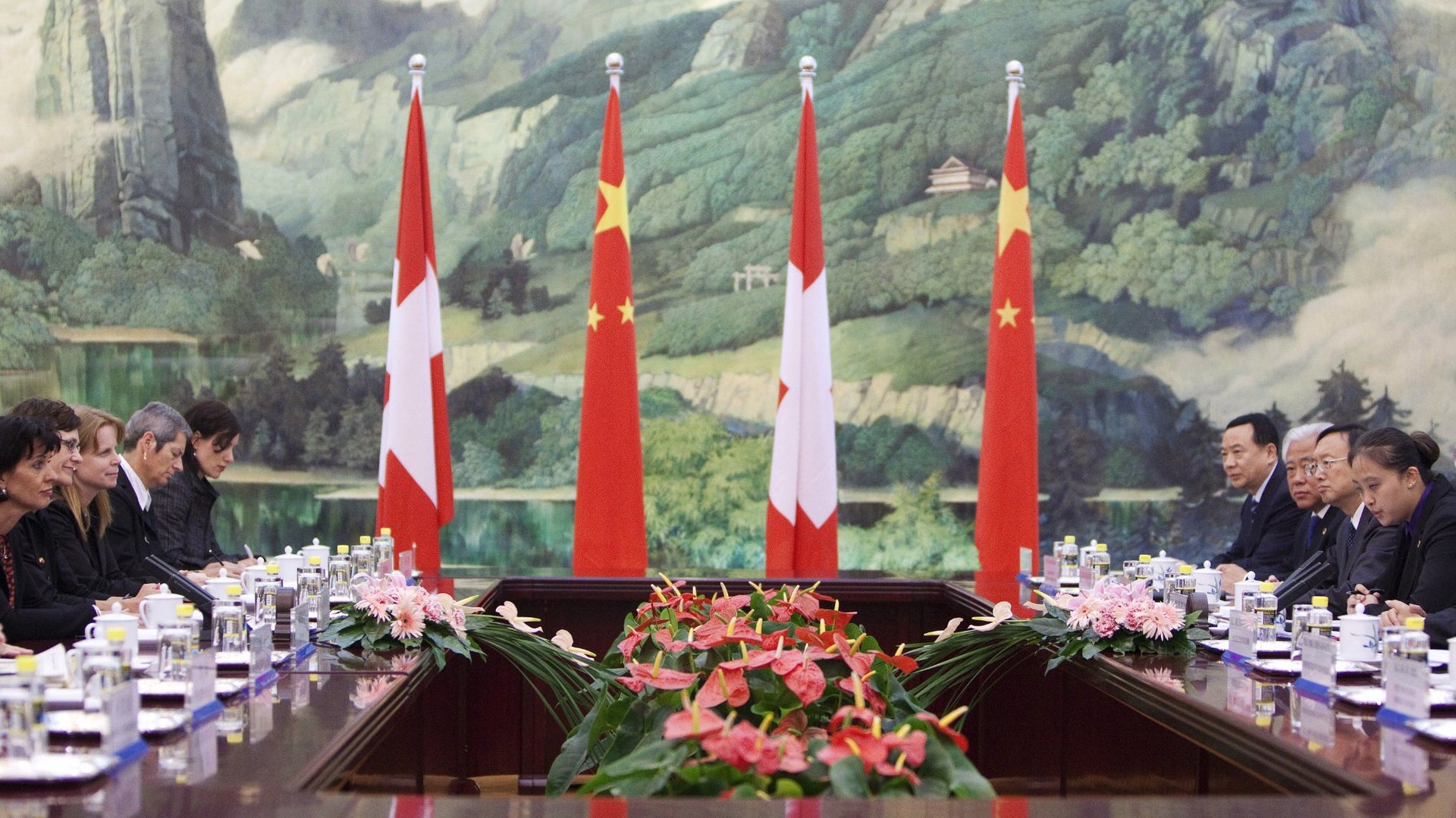Is China beating up on Swiss businesses?
Swiss businesses are the new—and surprising—target of Chinese government scrutiny. Whether it’s a concerted effort or not, the timing is odd given that China and Switzerland are about to formalize a celebrated free-trade agreement. The alpine nation’s third-biggest export market behind the EU and the United States, China imported $8.6 billion in Swiss goods in 2012. Here are some of the Swiss companies in Chinese authorities’ crosshairs.


Swiss businesses are the new—and surprising—target of Chinese government scrutiny. Whether it’s a concerted effort or not, the timing is odd given that China and Switzerland are about to formalize a celebrated free-trade agreement. The alpine nation’s third-biggest export market behind the EU and the United States, China imported $8.6 billion in Swiss goods in 2012. Here are some of the Swiss companies in Chinese authorities’ crosshairs.
Tetra Pak
The Chinese government just launched an investigation into Tetra Pak, a Swiss-Swedish food packaging company, for “abusing its market dominance” (link in Chinese). This may be related to the government’s infant formula industry sweep; Tetra Pak’s customers include the market leaders of China’s beleaguered dairy industry. Though nothing came of it, SAIC investigated Tetra Pak for monopolistic practices in 2005, on the grounds that the company held 95% of the antibacterial paper packaging market.
Nestlé
Citing a 30% increase in prices since 2008, the economic planning regulator is investigating price-fixing among foreign infant formula makers, including into Wyeth, a division of Nestlé. While collusion of foreign formula-makers could be causing prices to climb, it probably has more to do with China’s surging demand for foreign brands—which is so strong it has swept shelves bare all over the world. Regardless, Nestlé just agreed to slash prices.
Glencore
In April, China’s antitrust regulator finally gave Glencore, the Swiss-Anglo commodity producer, the go-ahead to buy Xtrata, a miner. But not before ruling that Glencore must divest Xtrata’s $5 billion Las Bambas copper mines in Peru, one of its crown jewels. (Around 10-14% of China’s copper concentrate imports come from Glencore, say analysts.) The ruling stipulated that Glencore would need to offer long-term copper supply deals for Chinese customers and gave Chinese regulators approval power over any Las Bambas buyer. Conveniently enough, two state-backed Chinese companies, Chinalco Mining Corp International and MMG Ltd, are now said to be mulling bids for Las Bambas.
Novartis
Officials are now investigating a slew of pharmaceutical multinationals for their drug pricing, including Swiss pharma giant Novartis. The investigation concerns what’s called the “essential medicines list.” Basically, the country’s health system limits prices of drugs it subsidizes through China’s public hospitals. Given the lack of private hospitals in China, this gives the government pricing power over any company hoping to sell in volume. And it’s wielded this power before; the government mandated five price cuts of 15-20% on average since March 2011 (paywall), according to Citi research. As with infant formula, Chinese patients tend to prefer Western brands for quality reasons, when given a choice.
Richemont & Swatch
Back to that free trade agreement: It should help fancy watchmakers like Richemont—maker of Cartier and Vacheron Constantin brands—and Swatch, which currently face 15-20% duties on watches exported to China. On top of that, China’s crackdown on luxury goods has clobbered their wristwatch sales for the last half-year. However, while Switzerland will eliminate tariffs on 99.7% on Chinese goods, China will remove tariffs on only 84% of its Swiss imports—not including fancy watches. Duties on those will come down only by 60% over 10 years.